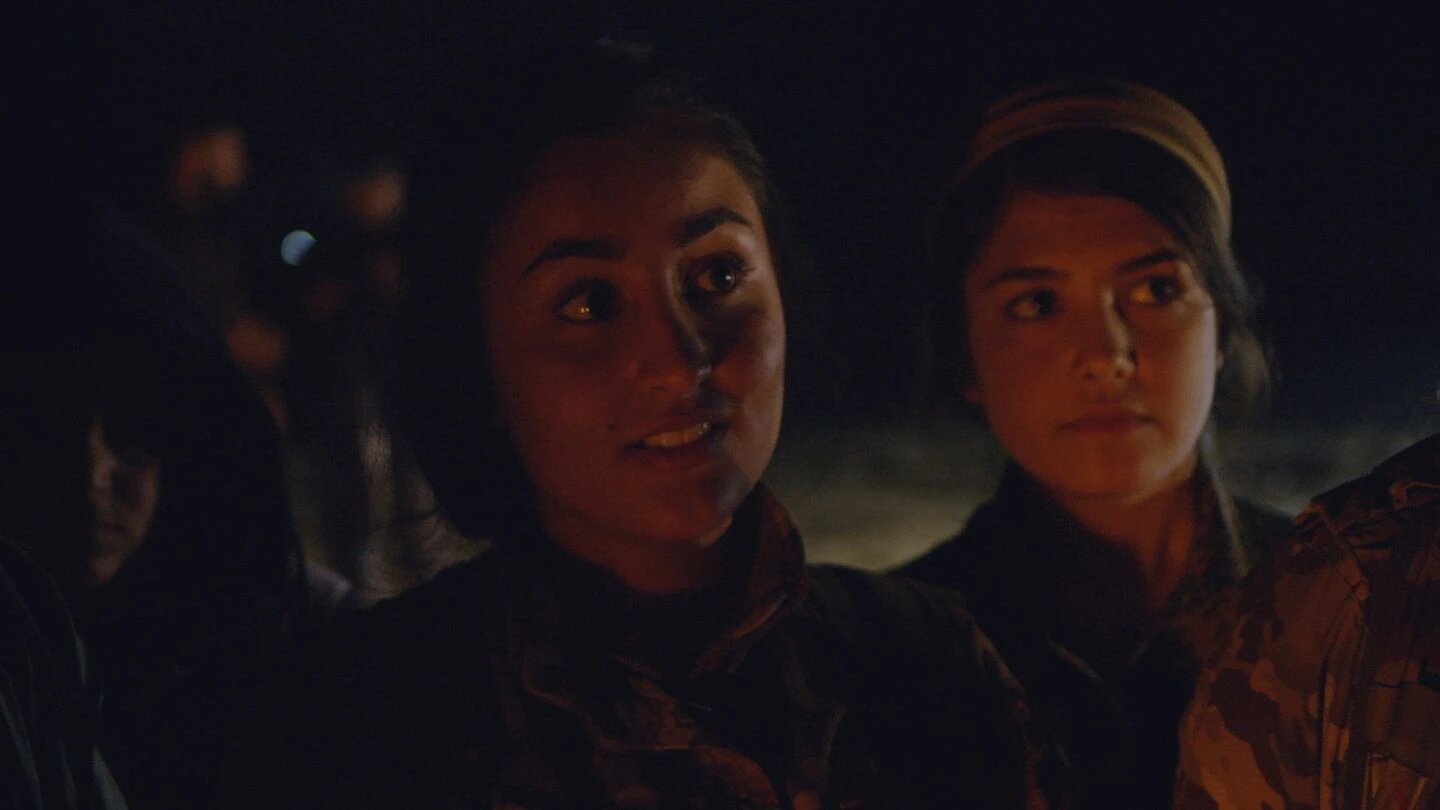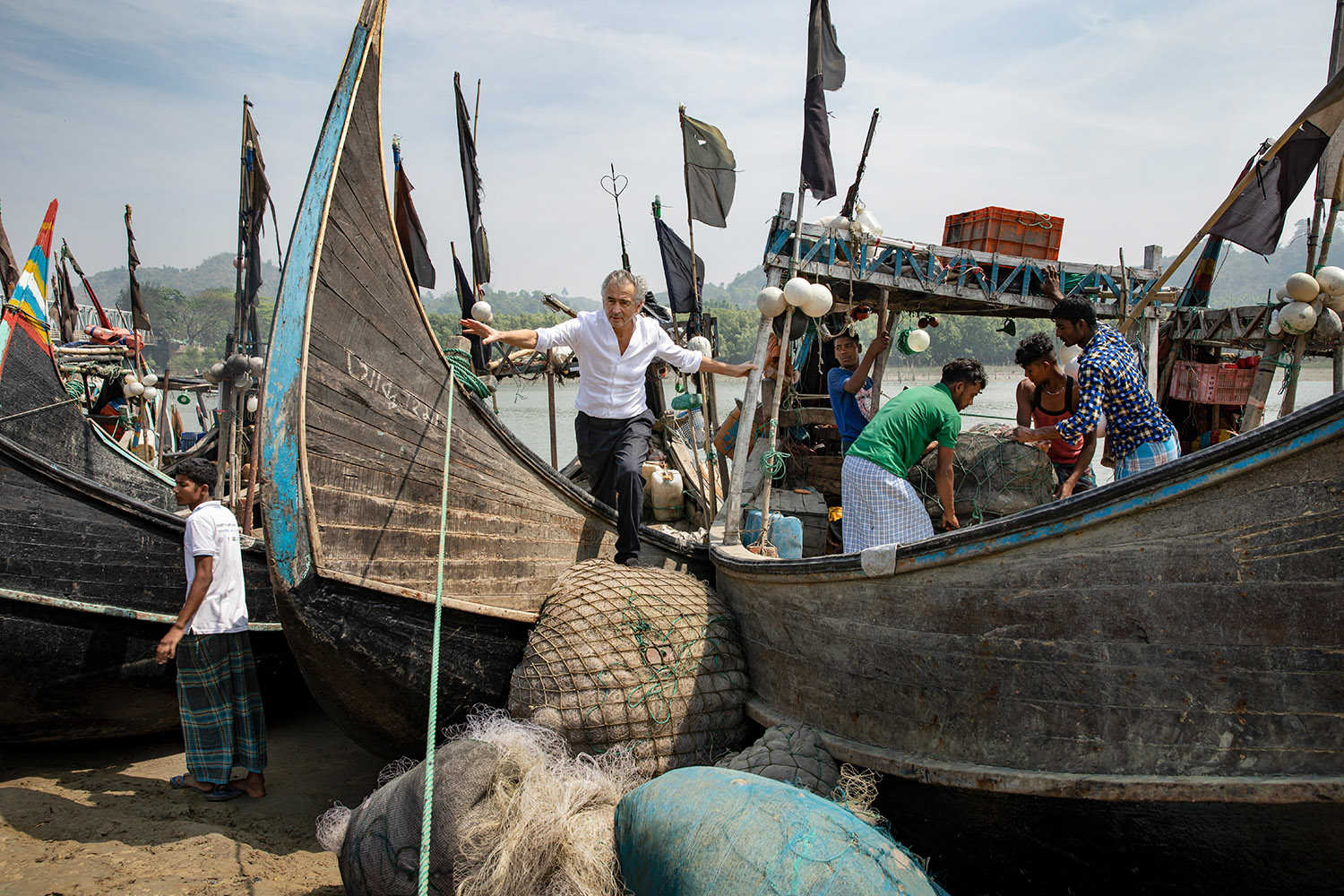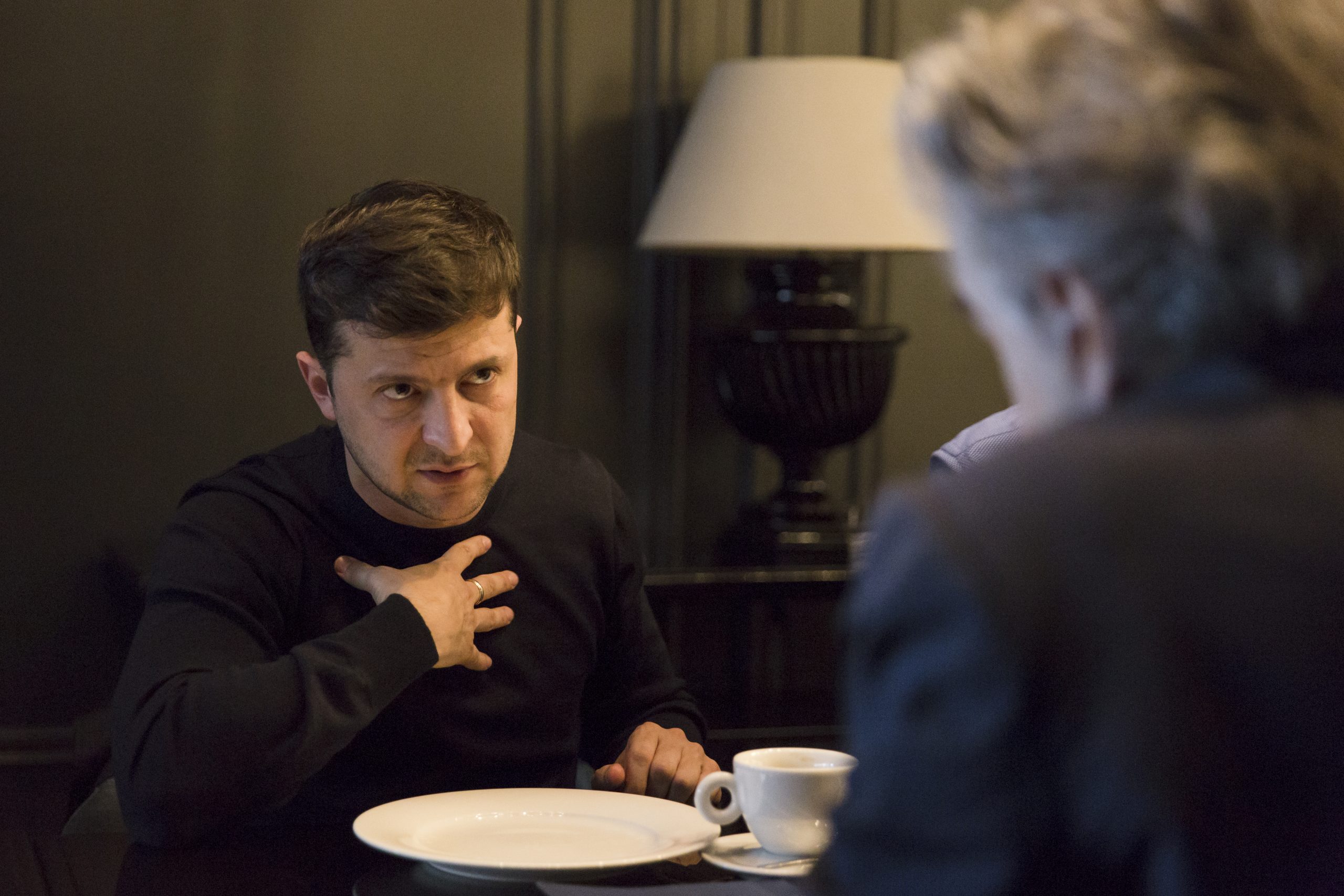
Bernard-Henri Lévy, the popular French media intellectual, war reporter, and writer, is kind of like the David Attenborough of war zones. While Attenborough shows the beauty of ecological habitats in danger of disappearing, Lévy exposes the horrors of conflicts that seem like they will never go away.
His documentary (co-directed with Marc Roussel) “The Will to See” plunges the viewer into his frenetic globe-hopping to the places the world would prefer to forget. He gets a call from a Nigerian human rights worker about Christian people being persecuted in his country. Despite his busy schedule, Lévy hears something in the man’s voice that compels him to investigate.
He arrives at a gruesome killing field filled with mutilated bodies butchered by Islamist fanatics. There he meets a woman with a missing arm. She was pregnant at the time she was maimed, and her life was spared because the warlord didn’t want to see her disemboweled in that condition. Instead, he had his followerschop off her arm bit by bit.
He learns later that the woman died in another raid. The terrorists operate with impunity, Lévy says, and in one harrowing scene the cameraman is chased off by a terrorist with a giant machete.
How does Lévy respond to such atrocities? He speaks and he writes to remind the public about them. The episodes in this film (also a book of the same title published last October) are from a series of articles he wrote for the Paris Match, La Reppublica, The Wall Street Journal, and other publications.

He also has the ear of the powerful. In 2011, he convinced then-French President Nicolas Sarkozy that France should support the rebels against the Khadafy regime in Libya. The UN Security Council voted to intervene. With the support of the West, Khadafy was overthrown and killed, but the country devolved into bloody anarchy.
Nine years later, Lévy returns to Tripoli to revisit a comrade, the rebel leader who liberated the city. He shows old footage of himself declaiming to a Libyan crowd that “Liberty always ends up triumphing over tyranny!” But it doesn’t seem that way anymore, and Lévy prepares to tape an address for a Misrata TV station calling for peace. His plans are foiled when pickup trucks full of armed thugs shouting antisemitic threats chase him and his motorcade out of town.
One of the forgotten war zones he covers has since reentered the world’s consciousness. Lévy journeys back to the Donbass region where he was present six years before when the Russian-backed separatists waged war with the Ukrainian government, a conflict that settled into a volatile stalemate during which thousands lost their lives. In 2019, he visits the country’s new president, a comedian-turned-politician named Volodymyr Zelensky. Later he asks Zelensky to allow him to tour the front lines. “There is war, real war, at the gates of Europe,” he says. “And I want to show . . . its face.”

We see that face every day now.
Other stops include Afghanistan, Darfur, and Mogadishu. None have improved since the last time Lévy had witnessed their turmoil. Though Lévy’s voice-over narration verges from the eloquent to the orotund, the film’s images are always lucid and haunting. You just need the will to see them.
“The Will To See” opens at the Kendall Square Cinema on May 6.
Go to www.landmarktheatres.com/boston/kendall-square-cinema#upcoming or cohenmedia.net/product/the-will-to-see.

Official social networks